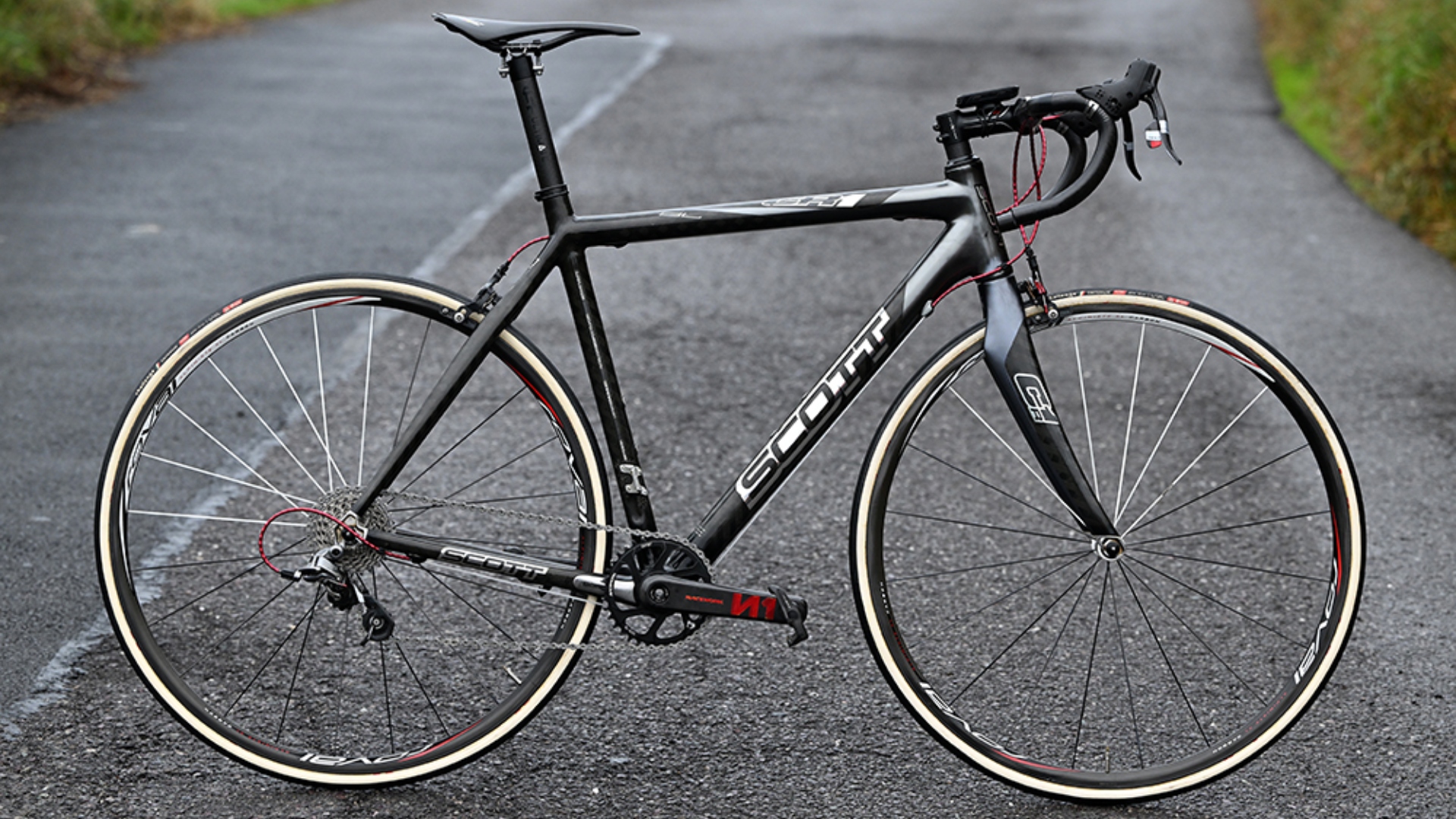
While the bikes that make up today’s professional peloton are certainly fancy, they aren’t typically all that interesting.
There's a good reason for it, of course. Sponsors pay a lot of money to supply the teams and need them to race the latest wares. The result is an armada of bikes all with similar specifications and little room for customisation.
Not so at a hill climb event, where riders storm from the bottom of a hill to the top, in the fastest time possible. The UK scene remains as vibrant, and creative, as ever. Driven by the need to go light but without the constraints of UCI regulations, each bike is like a patchwork quilt, made up of disparate parts in the hope that once stitched together they find a kind of harmony. So, these are the weird and the wonderful as opposed to the clean and the clinical. If the WorldTour is cycling’s Formula 1 equivalent, then the hill climb events are its Wacky Racers.
Across October we’re going to be celebrating these great inventions, starting with a budget build that leaves few stones underturned in the pursuit of dropping grams.
Harley Widdowson’s Scott CR1 Team
Harley Widdowson required a bike for the upcoming hill climb season and had set himself the task of doing so for under £1,000. It would be quite the challenge.
He started the build with a Scott CR1 Team edition from 2009. While it wasn’t the lightest, weighing around 1280g for frame and fork, it was cheap. At just £150 it would leave Widdowson with plenty of budget remaining to complete his build.
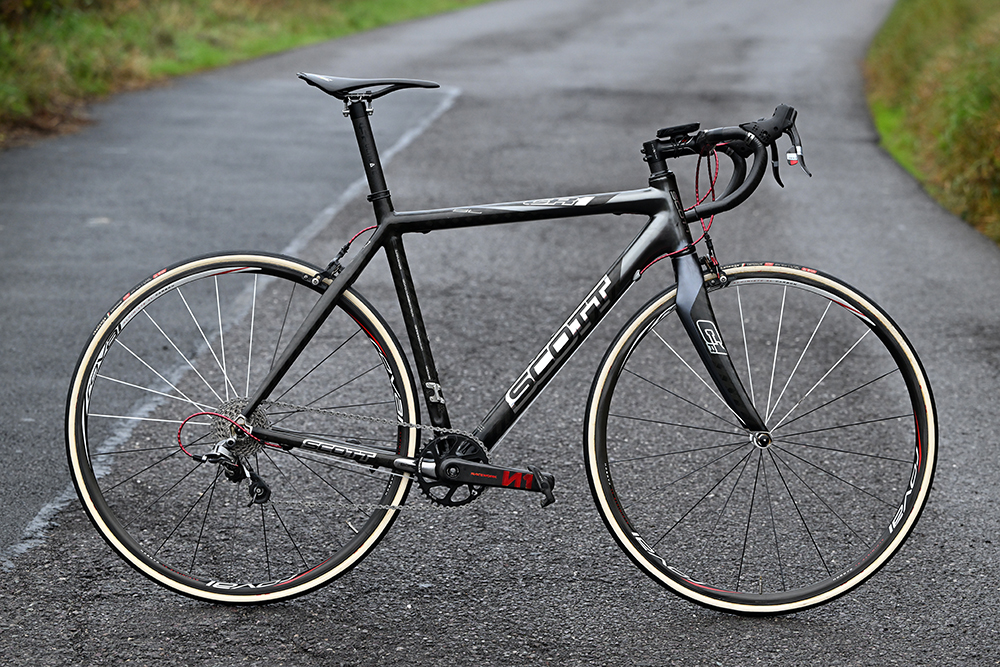
Next up was the groupset. Widdowson scoured eBay and managed to piece together a few 10-speed SRAM Red components, including brake calipers, shifters and cassette - a SRAM OG-1090 model that cost £50 and only weighs about 165 grams. The rear mech however is from the US brand’s second-tier Force offering.
“I managed to get a Red rear derailleur for just £10 as it had a broken hanger still attached,” Widdowson said. “However I couldn't remove it and had to settle for Force to keep the cost down.” He estimates that the switch cost him about 30 grams.
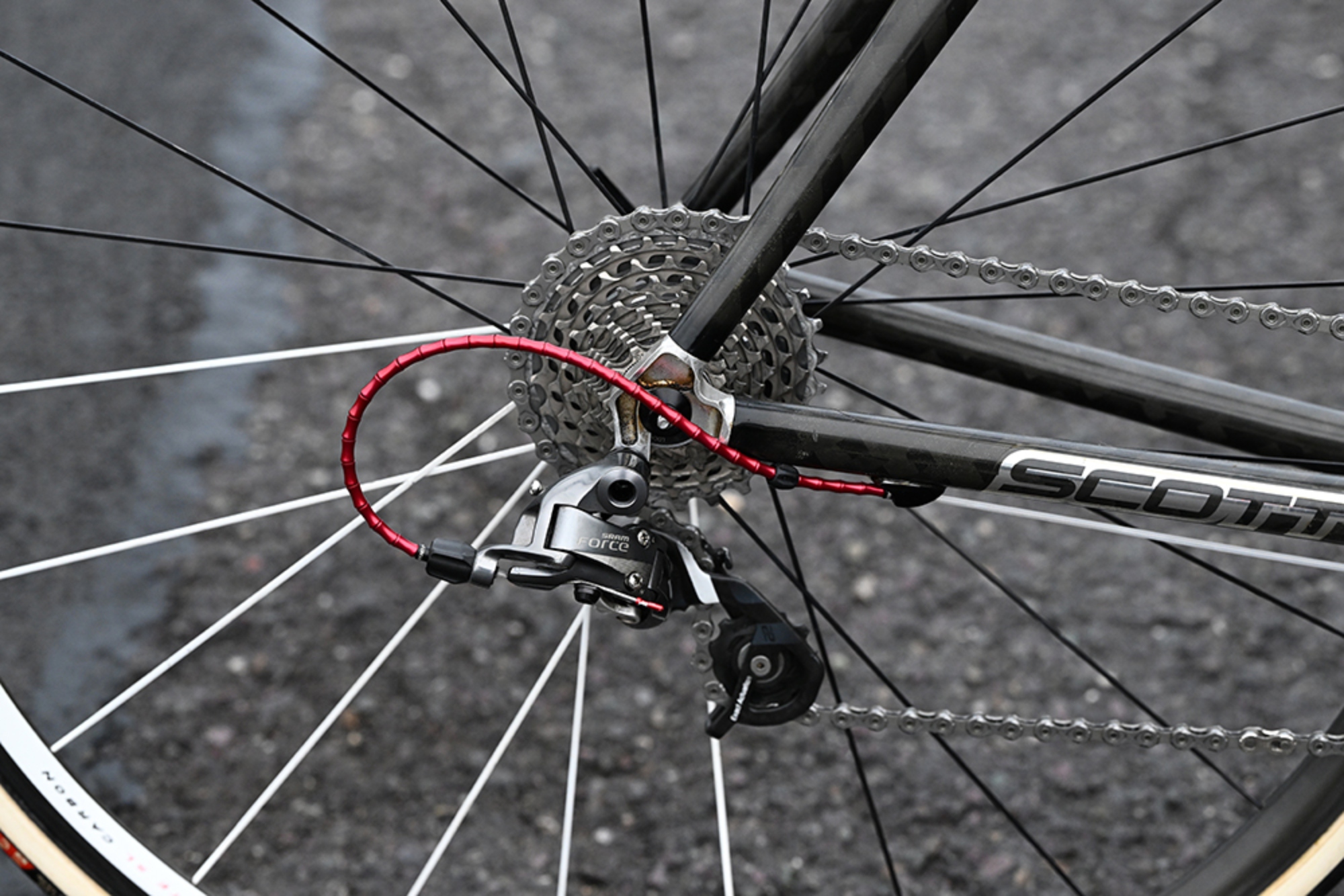
The chainset comes courtesy of the lesser-known brand RaceWorx and was sourced online. But the inspiration came from a fellow hill climber.
“I saw them on the current junior champion Harry Hudson's bike,” Widdowson says. “They only cost around £100 and are extremely light. They have been flawless so far. I have sharpied them in red to match the bike’s colour scheme. I hope the ink doesn't weigh much!”
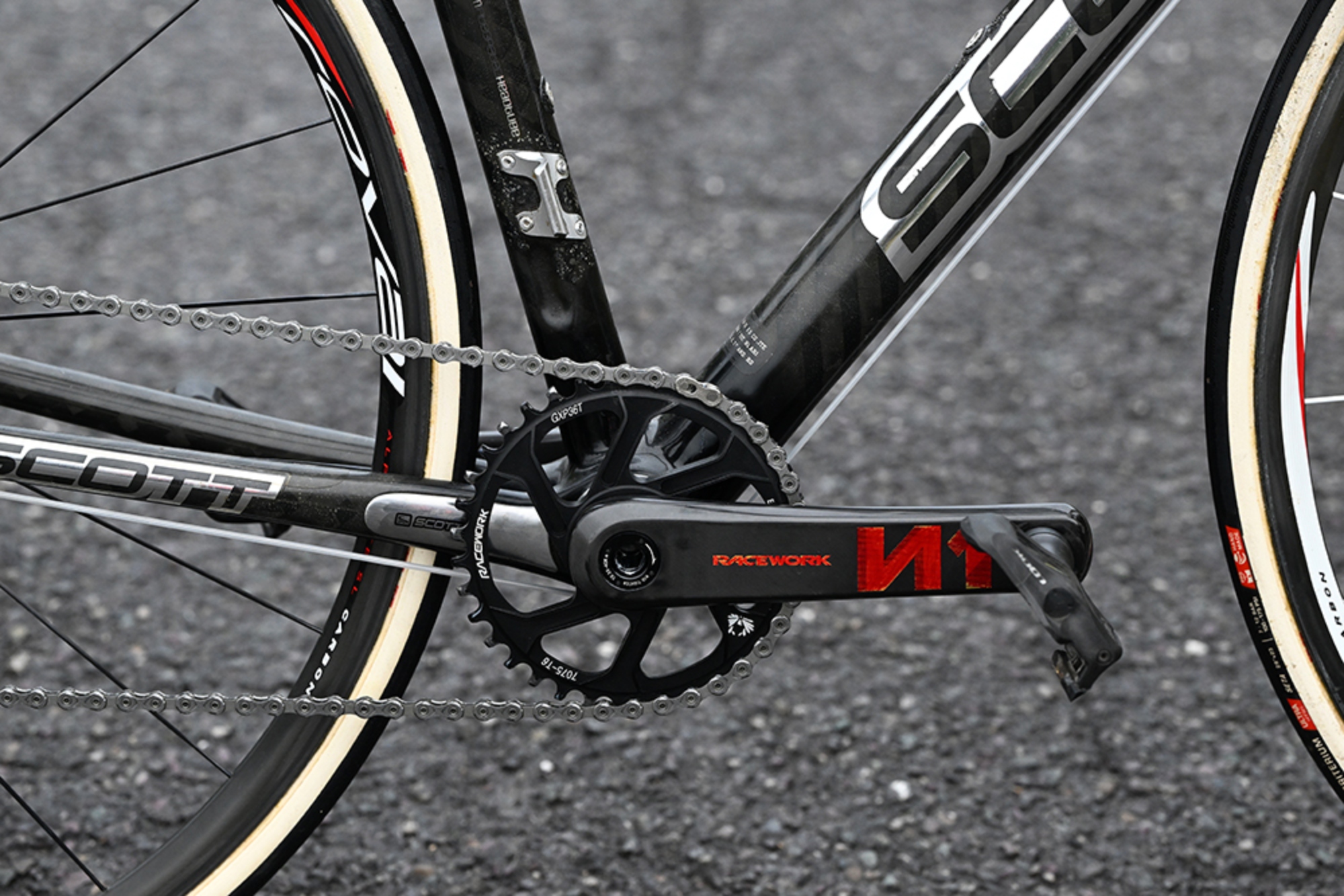
By running a single 36t chainring he was able to save weight compared to a double chainset. He took this yet further, stripping down the left hand lever, which was now only required to operate the rear brake rather than the front mech as well. “There are also no rubber hood covers, saving 30 grams,” says Widdowson.
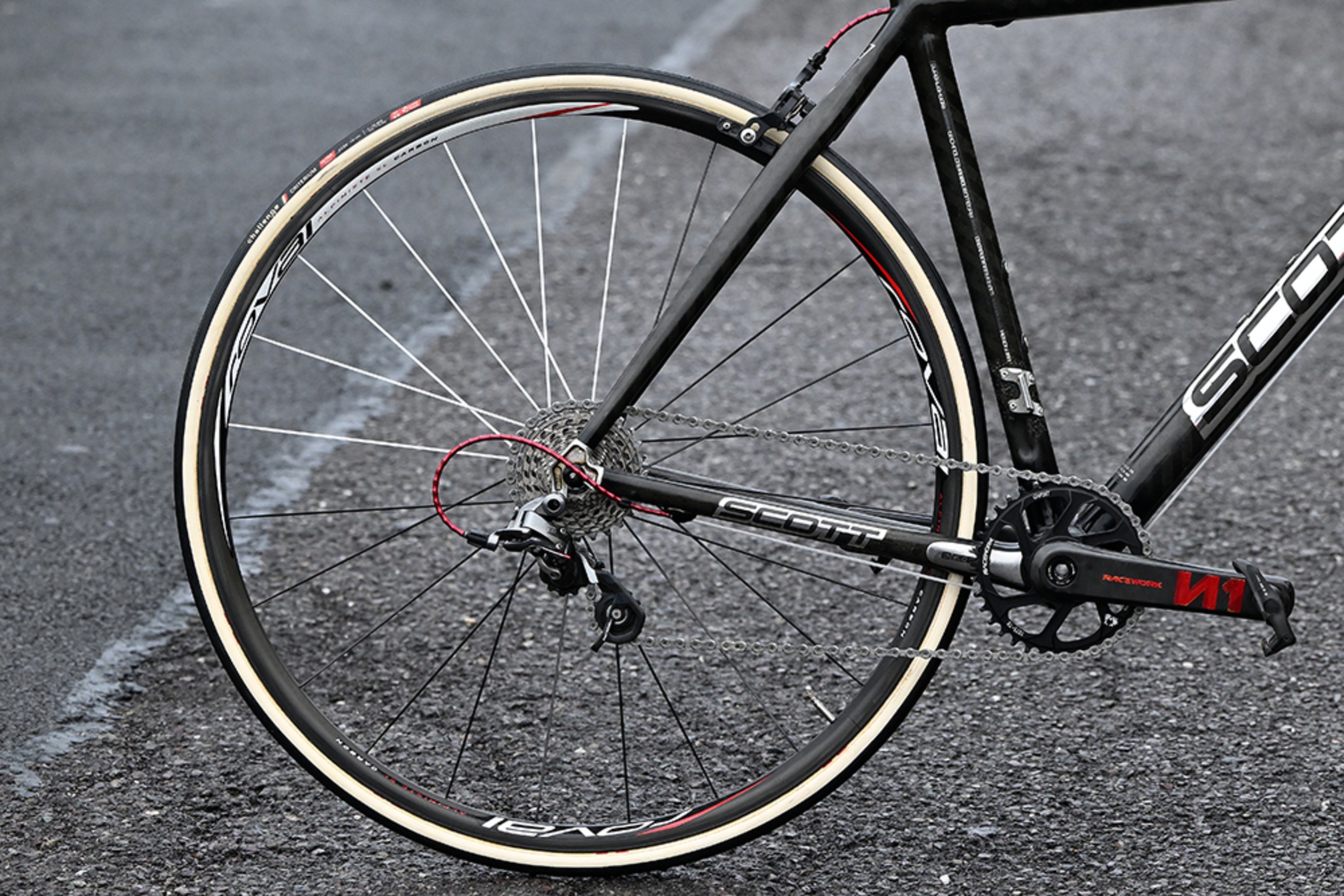
Perhaps the biggest coup of the build was the wheelset. Knowing that this is a component that can significantly impact the bike’s overall weight, Widdowson went looking for something affordable but also light. He found it in a pair of used Roval Alpinist hoops, again sourced from eBay.
“They cost £250 and weigh a staggering 1035 grams,” he says. “I really love the white spokes. The tubular Challenge tyres were sourced on eBay too."
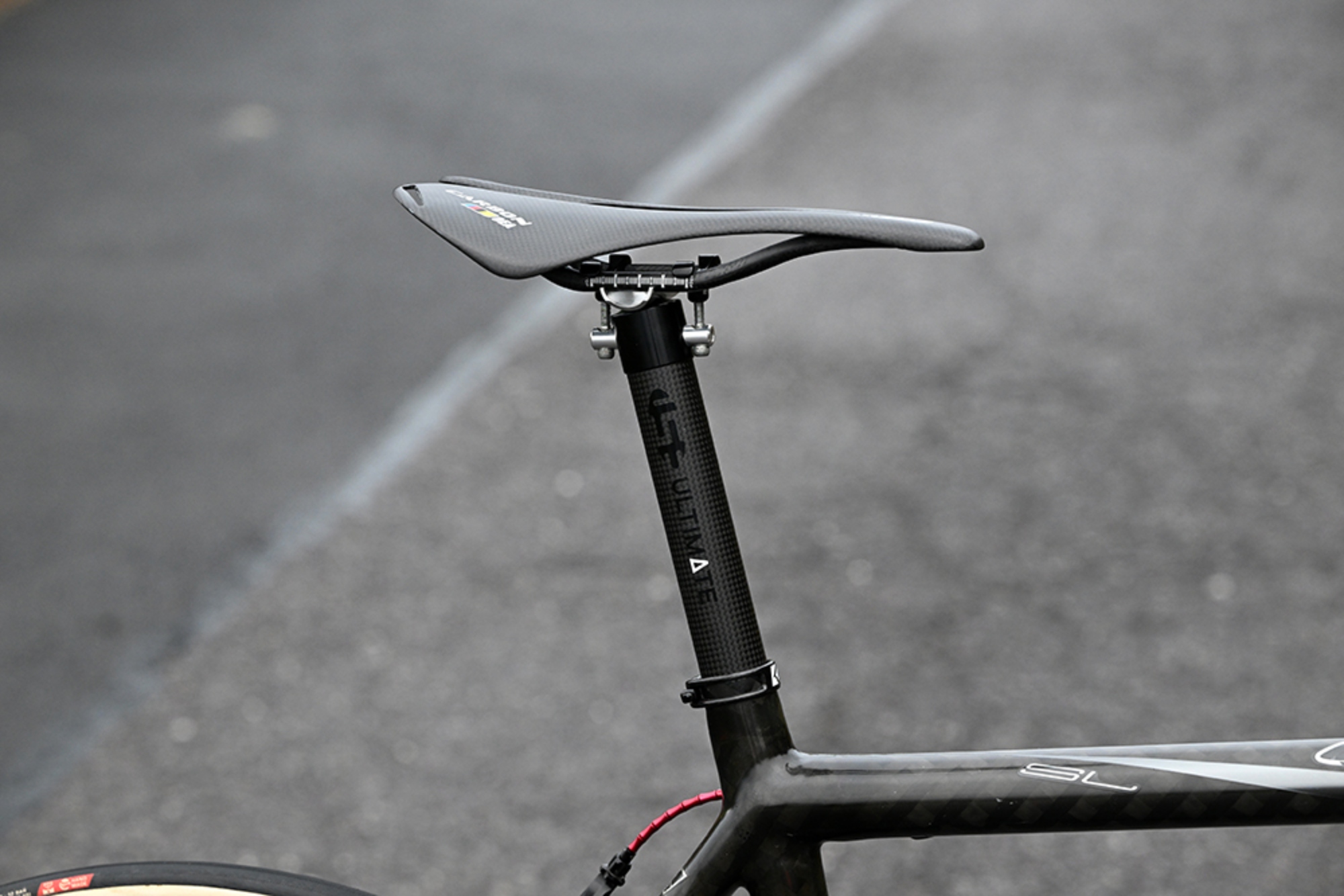
The famous online marketplace came up trumps for some of the bike’s finishing kit too, including Prime x light bars and a “super light” USE seat post both for around £30; the bars are without the usual tape to help save a few grams.
However, for the saddle and seat clamp, he visited the same online site that supplied the hollow crankset. Like the crank arms, both are ‘budget’ options but the Opera OEA saddle is carbon, while the clamp only weighs 6 grams. The build is completed with Jagwire link cables in metallic red to both “save some weight and really bring the colour scheme together.”
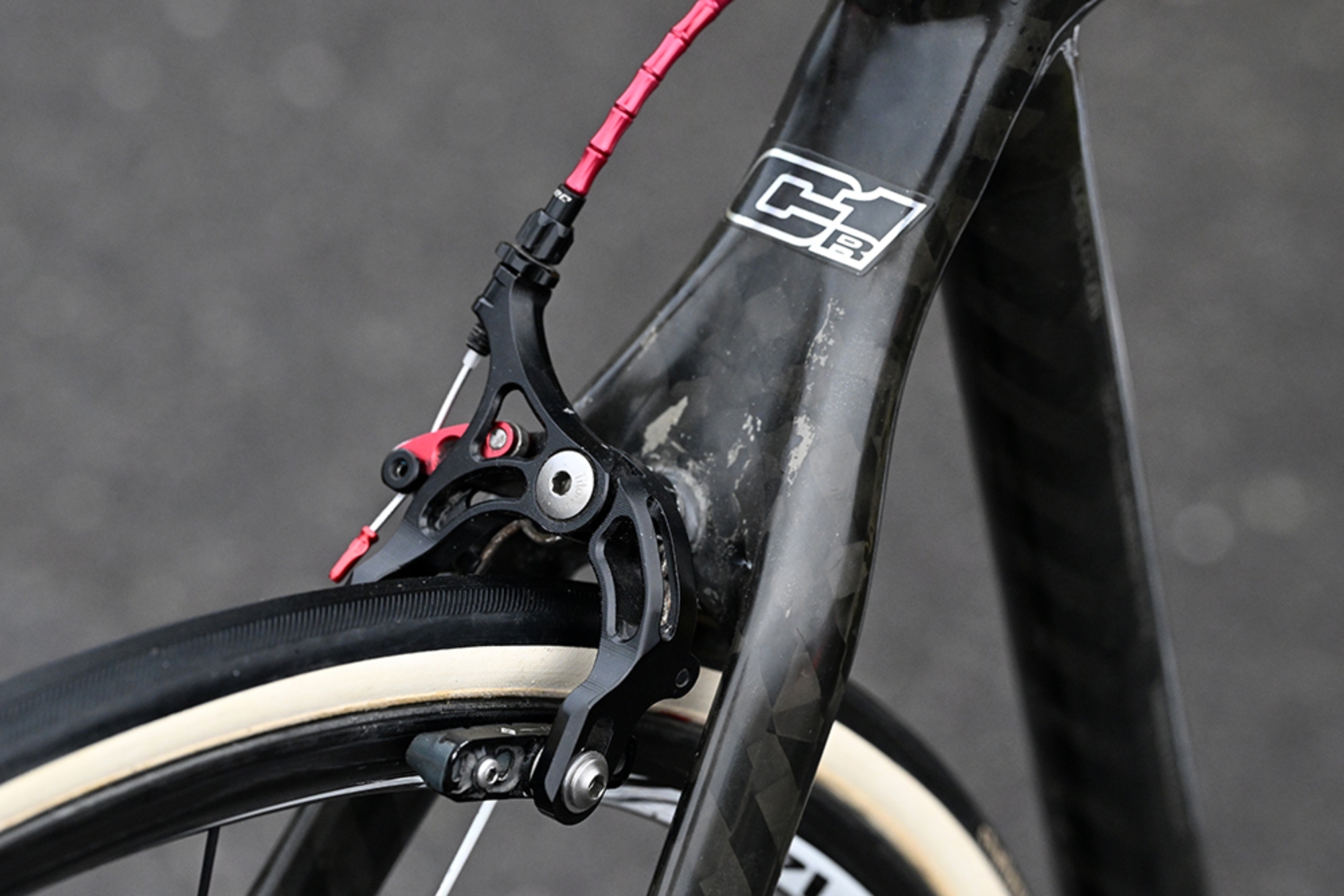
Completed with the help of a local bike mechanic, the bike weighs an impressive 5.5kg including the Look Keo pedals, and cost just under the target of £1000.
“It’s a great example that hill climbing bikes don’t have to be too exotic and expensive,” Widdowson says. “The frame hasn't been sanded or the bars chopped so with a wheel change it’s still a totally functional bike.”







